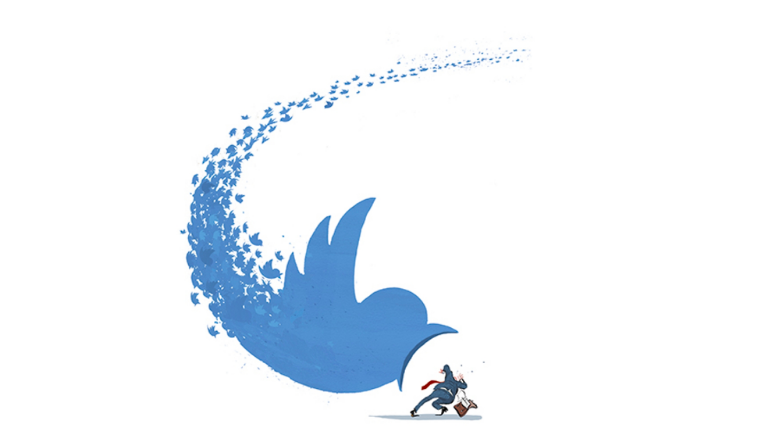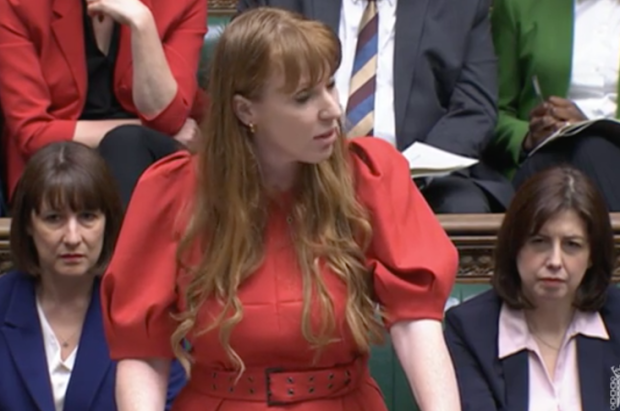All it took for the Twitter mob to descend on me was a retweet from Michael Gove. Message after message called for a resignation. Often it wasn’t entirely clear who the target was: me, the leader of a medium-sized youth charity, or him, the second best known member of the Cabinet.
What on earth was in this few short sentences that had unlocked the world’s bile and aggression? Gove had committed the cardinal sin of recommending a book I have written. Ironically enough, it is a book on why our societies have become so divided and how we fix them.
It is blindingly obvious to most of us why our societies have become divided. Two words is all we need: not the ridiculous 300 pages I took. Social. Media. The only solution is to tame the beast and ideally shut it down. Facebook has made a gallant start by banning Donald Trump. That’s it, Mr Zuckerberg, eight billion bans to go and our healing can begin.
There is only one trouble with the ‘social media divided us’ story. It’s wrong.
This doesn’t mean that we don’t have a problem with division. We patently do. Half of Britons believe that their country has never been so divided. They are right. Just look at our friendship groups.
Half of graduates don’t have a single friend without a degree. Most pensioners never talk to anyone under the age of 35 – apart from their grandchildren. A fifth of Leavers and a quarter of Remainers have no friends who voted the other way. Half of us lack a single friend from a different ethnic background. The largest divide remains wealth. A UK barrister would have to invite 100 people into their garden (breaking the law thrice over) before they would invite a single person who is unemployed.
These divisions matter. As I lay out in my Gove-approved book, they weaken our democracy, undermine social mobility, slow down our economy, make terrorism more likely and make us more likely to be anxious and lonely. They are a problem. But they are not caused by social media.
The average British person can use their common sense to work out why we divide in the way we do. The truth is that ‘birds of a feather flock together’. Always have, always will. Some of this is all to the good. I like talking about the West Wing too much. People shouldn’t have to put up with that. Far better that us West-Wing-lovers cluster together and allow everyone else to live in peace. But everything in moderation. There is a point at which our divisions – natural though they may be – start to mess up the things we really care about – like our democracy, fairness and our safety.
That’s why throughout history, societies have found ways to throw us together with people that we didn’t choose to spend time with. When we were hunter-gatherers, different families would bond together through rituals, hunting and dance. When we were farmers, we relied on feast days, rites of passage and organised religion. When our near ancestors moved to the cities, they invented a new institution: the club.
Between 1850 and 1920, our great-grandparents went ‘club and society’ crazy. Pretty much every voluntary association you have ever heard of dates from this period from the Scouts to the Guides, the Women’s Institute to the Salvation Army. These groups mattered. In cities crowded with strangers, they knitted people together.
Until they didn’t. Every single generation since 1950 has been less likely than the previous one to join a club or society. It is as though someone found a reverse gear, selected it and hit the accelerator. The great knitting machine broke down and we all started to divide – years before anyone had ever heard of Mark Zuckerberg.
All of us, apart from one town: Notel – home to 658 Canadians, nestled in the Rocky Mountains, nine-hours’ drive north of Vancouver. Notel had seen no decline in its clubs and societies. Unlike the rest of the West, residents continued to meet up each evening at the bridge club, the hockey club, the Scouts, the Elks and the neighbourhood watch.
There is something else you need to know about Notel. It’s not really called Notel. Notel is a nickname based on the other odd thing about the town. It had no television. Blocked by the mountains, the signal couldn’t get through. Without TV to entertain them, the townsfolk kept on attending their clubs. Until the winter of 1973, when the TV signal arrived. The town’s clubs and societies fell away just like everywhere else.
There is a technology that helped to divide us. But it’s not social media.
<//>
Got something to add? Join the discussion and comment below.
Get 10 issues for just $10
Subscribe to The Spectator Australia today for the next 10 magazine issues, plus full online access, for just $10.
Jon Yates is the author of 'Fractured: Why our societies are coming apart and how we put them back together' – available here



















Comments
Don't miss out
Join the conversation with other Spectator Australia readers. Subscribe to leave a comment.
SUBSCRIBEAlready a subscriber? Log in